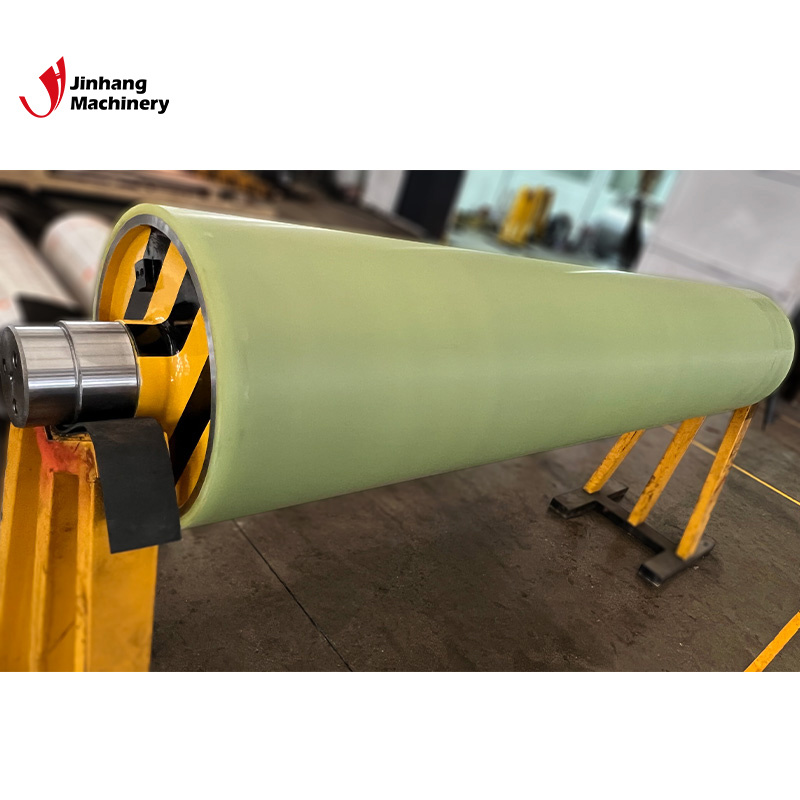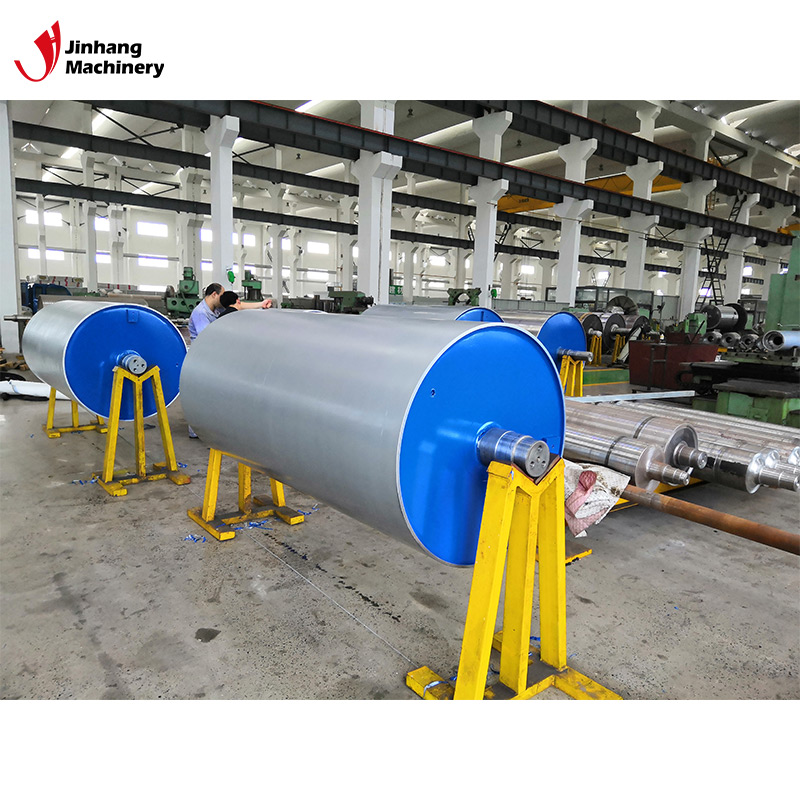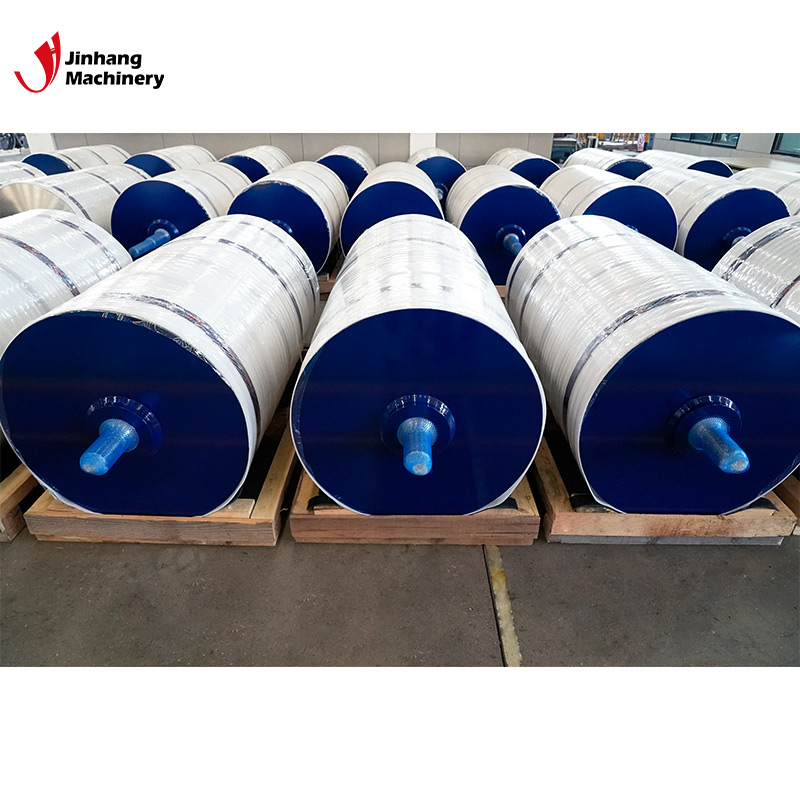What is Polyurethane Roller? Which industries need to use it?
In modern industrial manufacturing, polyurethane roller has become one of the indispensable equipment. Its unique material properties and wide range of applications make it occupy an important position in many industries. This article will discuss in detail the definition, material properties, production process and specific applications of polyurethane rollers in different industrial fields to help readers better understand the value and use of this industrial tool.

What is a polyurethane roller?
Polyurethane rollers are industrial rollers made of polyurethane material that are widely used in applications that require high strength, wear resistance, and chemical resistance. Polyurethane itself is a synthetic elastomer produced by the chemical reaction of isocyanate and polyol, and has excellent mechanical properties and environmental resistance. The roller body of a polyurethane roller is usually made of steel, aluminum or other metal materials, and the surface is coated with a layer of polyurethane material to increase the wear resistance, elasticity and chemical stability of the roller.
Material properties of polyurethane
Polyurethane materials have several notable properties that make them ideal for manufacturing industrial rollers:
● High strength and elasticity: Polyurethane material has excellent tensile strength and high elastic modulus, which can withstand heavy loads while maintaining shape stability.
● Wear resistance: Polyurethane rollers exhibit excellent wear resistance during high-speed operation and long-term use, which makes them particularly suitable for use in production lines and processing equipment.
● Chemical resistance: Polyurethane is highly resistant to many chemicals, including oils, solvents, and various acids and bases.
● Good shock-absorbing and sound-absorbing properties: Polyurethane material can effectively absorb shock and absorb noise during mechanical operation, reducing vibration and noise pollution when equipment is running.
● Temperature adaptability: Polyurethane rollers can work normally in a wide temperature range, and are suitable for both high-temperature environments and low-temperature conditions to maintain elasticity and strength.
What is the production process of polyurethane rollers?
Manufacturing polyurethane rollers typically requires several key steps. The first step is to select a suitable base material, such as steel or aluminum, and machine it to the appropriate size and shape for the roll's intended use. Then, the base material is subjected to surface treatment, such as cleaning, sandblasting, etc., to ensure that the polyurethane material can adhere firmly to the roller body. Next, the polyurethane material is evenly covered on the surface of the roller through injection molding, pouring or spraying. Finally, the roller is cured, cooled and necessary post-processing, such as grinding and polishing, to ensure the accuracy and surface quality of the finished product.

What are the application industries of polyurethane rollers?
Due to its superior performance and diverse application characteristics, polyurethane rollers are widely used in many industries. The following are some industries where polyurethane rollers are mainly used and their specific application scenarios.
Paper and printing industry
In the paper and printing industries, polyurethane rollers are widely used in paper handling, printing cylinders and coating equipment. Due to its excellent wear resistance and high elasticity, polyurethane rollers can maintain the flatness and surface finish of the paper even when the paper passes through it at high speed. In addition, the polyurethane roller can evenly apply the coating material during the coating process, ensuring a consistent coating thickness, thereby improving printing quality.
Steel and metal processing industry
In the steel and metal processing industry, polyurethane rollers are used in the transport, pressing and shaping processes of strip, plate and tube. Since metal processing involves high temperatures, high pressures and a lot of wear, the high strength and wear resistance of polyurethane rollers enable them to withstand these harsh working conditions. Polyurethane rollers also have shock-absorbing and impact-resistant functions during metal surface treatment, helping to improve product surface quality and extend equipment service life.
Textile industry
In the textile industry, polyurethane rollers are used in fabric processing, dyeing and finishing processes. Its high elasticity and chemical resistance make it ideal for processing a wide range of textile materials. Polyurethane rollers provide uniform pressure during the dyeing and finishing process, ensuring a smooth fabric surface and even dyeing. In addition, the chemical resistance of polyurethane rollers allows them to remain stable when handling corrosive dyes and chemicals.
Plastics and packaging industry
In the plastics and packaging industry, polyurethane rollers are widely used in production lines for films, plastic sheets and packaging materials. The wear resistance and anti-adhesion properties of polyurethane rollers enable it to prevent material adhesion during high-speed operation and ensure smooth transfer of materials. In addition, polyurethane rollers can provide precise pressure control during cutting, laminating and printing of plastic and packaging materials, thereby improving product quality and consistency.
Glass and ceramic industry
The production processes in the glass and ceramics industry usually involve high temperatures and pressures. Polyurethane rollers are suitable for the molding, transportation and surface treatment of glass and ceramics due to their high temperature resistance and wear resistance. Polyurethane rollers can maintain stable performance in high-temperature environments and effectively reduce surface scratches, ensuring the smoothness and integrity of glass and ceramic products.
Food and Beverage Industry
The food and beverage industry has extremely high hygiene requirements for equipment. Polyurethane rollers are widely used in food transfer and packaging equipment due to their low water absorption and good antibacterial properties. Polyurethane rollers ensure hygienic and safe production processes while maintaining material integrity. In addition, the nontoxicity and easy cleaning of polyurethane materials have made them widely recognized for use in the food processing industry.

How to choose the right polyurethane roller?
First, the material requirements of the polyurethane roller need to be determined according to the specific application scenario, including its hardness, wear resistance and chemical resistance. Different industries and application scenarios have different performance requirements for polyurethane materials. For example, in high-wear environments, polyurethane materials with higher hardness need to be selected, while in chemical treatment processes, materials with stronger chemical corrosion resistance need to be selected.
Secondly, the load capacity of polyurethane rollers is also an important factor to consider when selecting. It is necessary to select a polyurethane roller that can withstand the corresponding load and is not easily deformed according to the workload and operating speed of the production line. Typically, the load capacity of a polyurethane roller is related to its thickness and substrate strength.
In addition, service life is an important indicator for evaluating the quality of polyurethane rollers. High-quality polyurethane rollers can maintain stable performance during long periods of high-intensity work, reducing equipment maintenance and replacement frequency, thereby reducing production costs. When selecting polyurethane rollers, you can refer to the life test data provided by the manufacturer and make your selection based on actual production conditions.
Finally, the ease of installation and maintenance of polyurethane rollers is also one of the important factors that influence the choice. Choosing polyurethane rollers that are easy to install and maintain can reduce production downtime and improve production efficiency. In addition, the thickness and repairability of the wear-resistant layer of the polyurethane roller are also aspects that need attention. High-quality polyurethane rollers usually have good repairability and can extend their service life through recoating or grinding.
